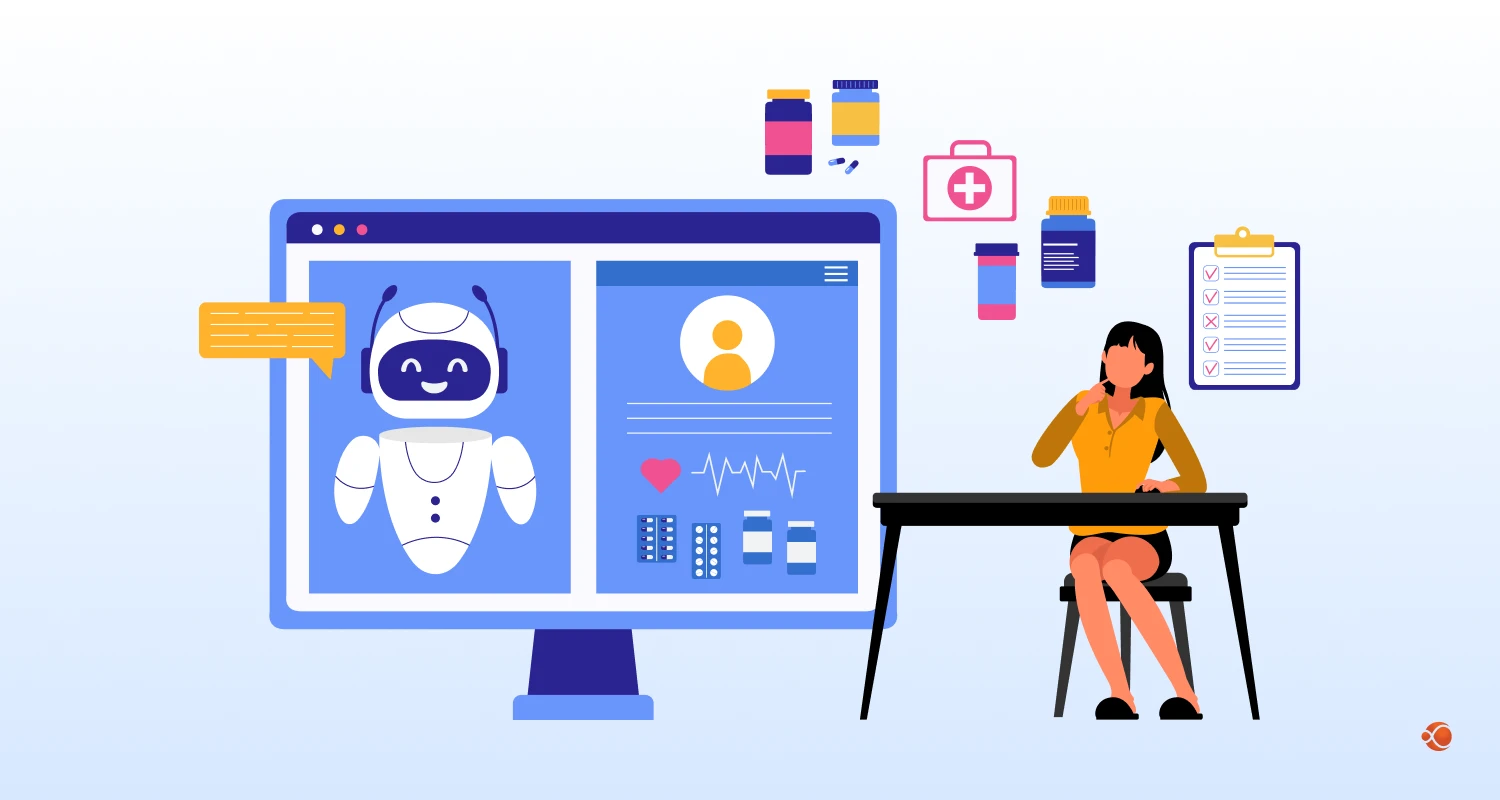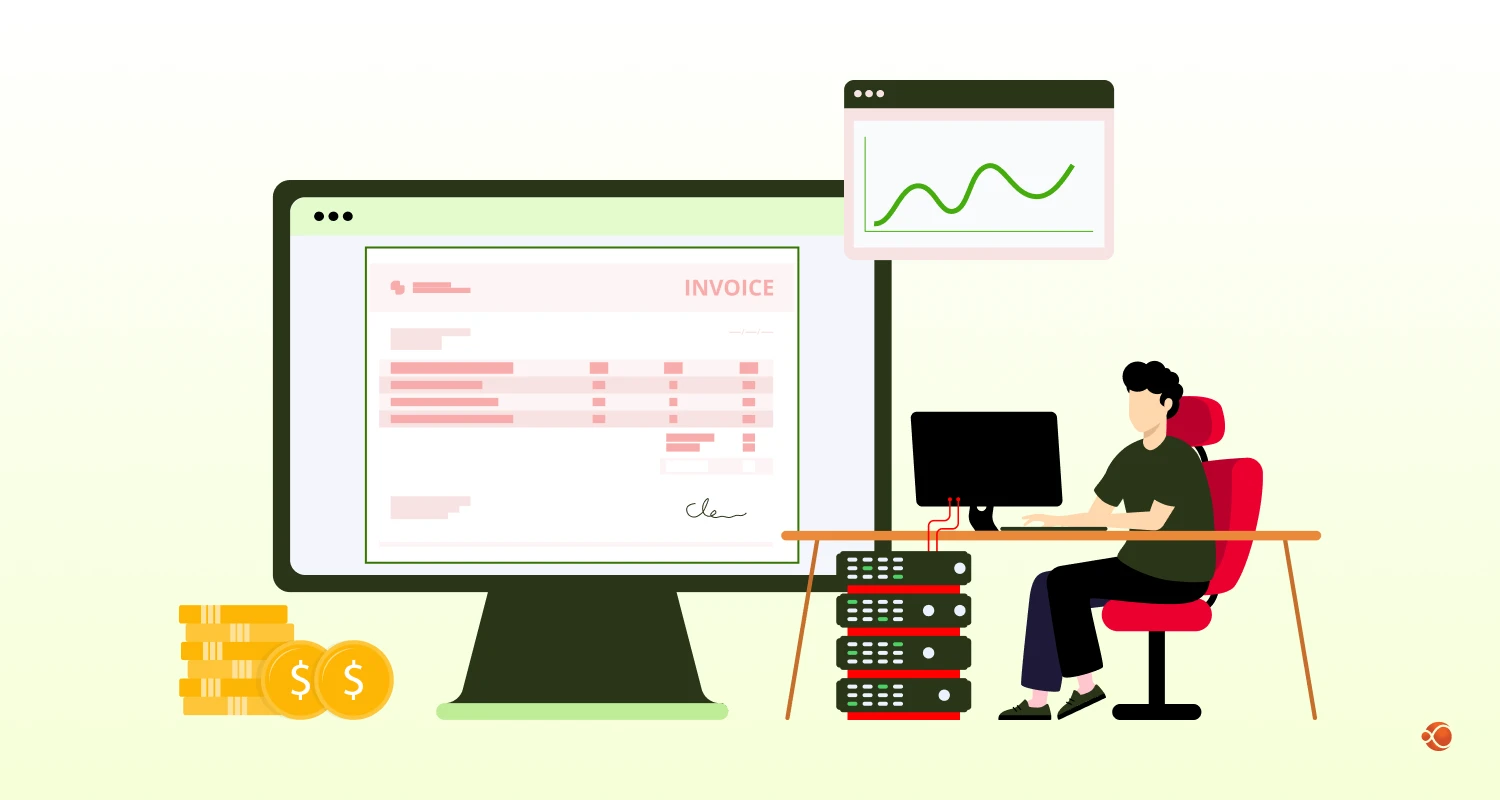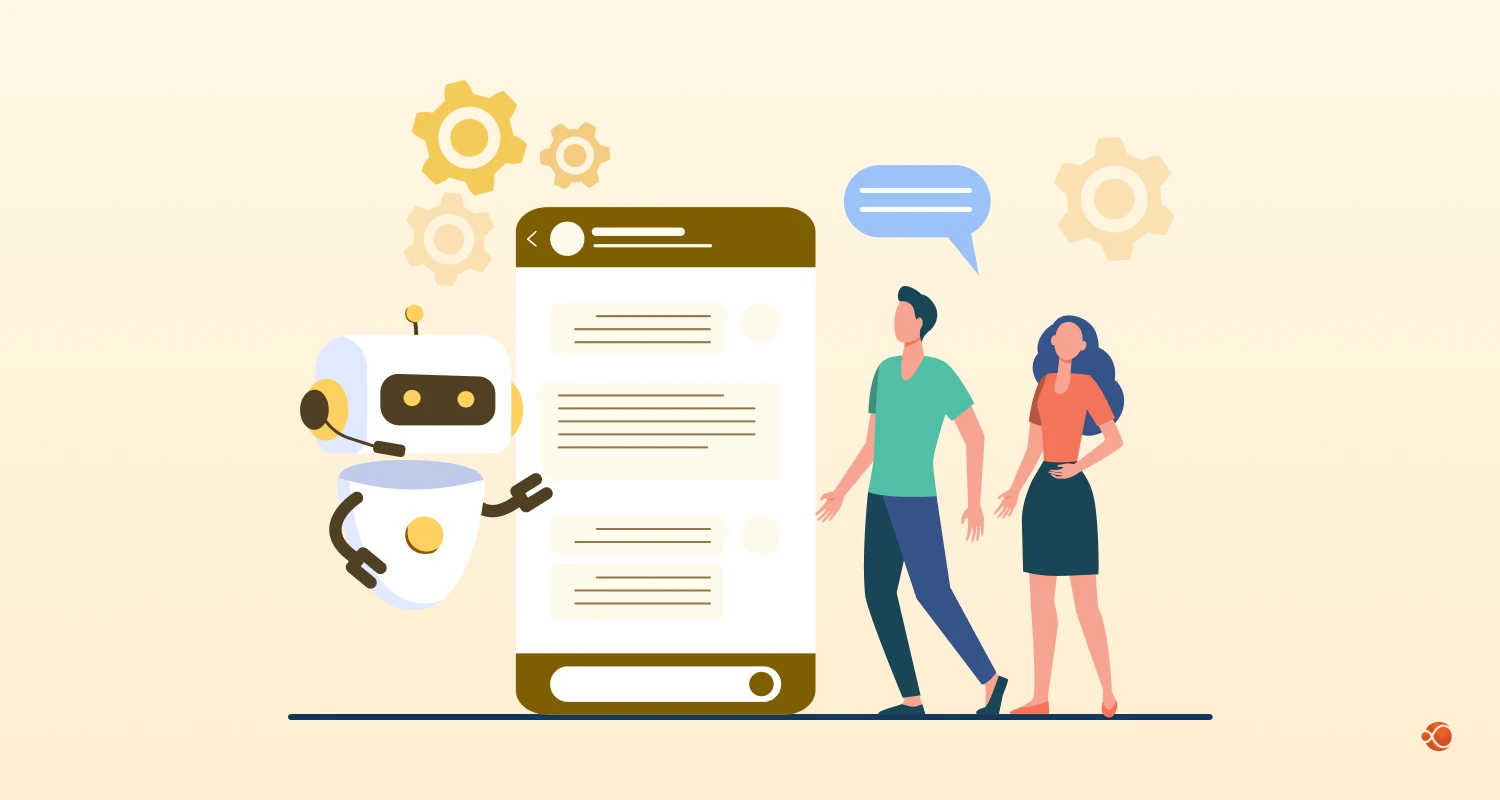Quick Summary: Is your practice held back by high costs and inefficiencies? This blog reveals how AI healthcare startups are revolutionizing medicine, using AI to transform diagnostics and operations. Read on to discover how these solutions can help you innovate your practice and focus on what matters the most: improving patient outcomes.
The global healthcare system is in a critical condition. The symptoms seem uncontrollable, and the chances of survival seem close to zero, unless companies understand, adapt, and embrace healthcare AI solutions. With the right tools, team of developers, and clarity, AI can revolutionize medicine from a reactive solution to a personalized proactive enabler. Such a shift marks the beginning of a new era of medical innovation, where humans and technology will work together for improving patient outcomes, and make healthcare accessible and efficient for the future.
AI in Healthcare Market: Market Size and Popularity
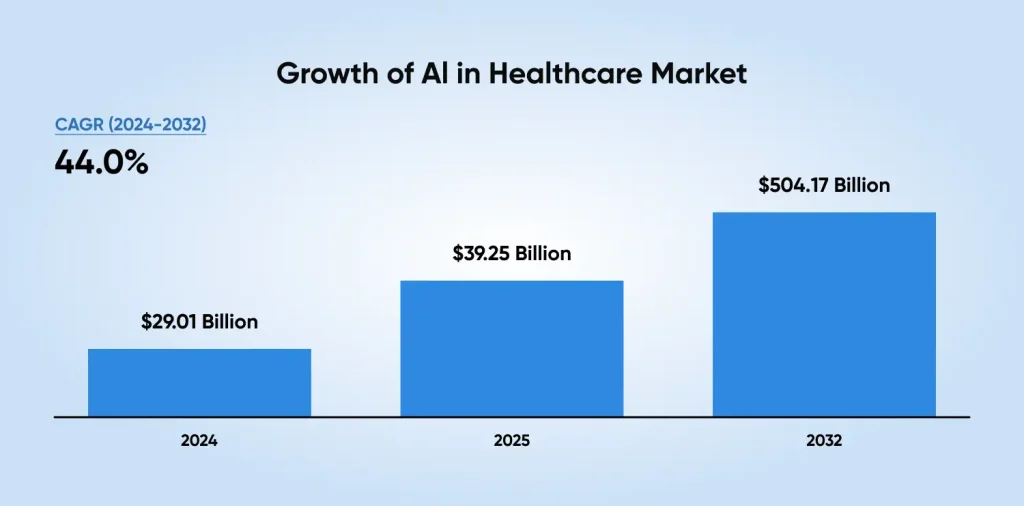
AI in the healthcare market is expected to rise steadily at an impressive CAGR of 44.0% during 2025-2032. The current valuation of AI healthcare solutions market size stands at USD 29.25 billion and is expected to reach USD 504.17 billion by 2032.
How AI Healthcare Startups Are Revolutionising Medical Innovation
AI is not a standalone technology but a collection of automation tools and algorithms that are being applied across the entire healthcare ecosystem. Its influence is most pronounced in four critical areas, each addressing a unique pain point within the industry. Hire dedicated developers with experience in the medical field to get the best solution for your needs.
1. Diagnostics: The New Frontier of Early Detection
The human eye is remarkable but it has its limitations. Clinicians, especially in high-volume settings, can suffer from fatigue and cognitive biases. AI has the ability to process and analyze data at a scale and speed that we simply can’t match. This is turning out to be a great asset for early disease detection with improved accuracy.
AI in Medical Imaging
AI algorithms are trained on large datasets . They contain images or medical records to enable AI models to identify subtle anomalies. Whether it’s an X-ray, MRI scan or even CT scan, AI systems can be trained to get an accurate reading of these documents that could be missed by even a professional radiologist. This is an impactful use case of AI for diagnostics. For instance, AI systems are trained to detect faint indications of diabetic retinopathy from retinal scans.
AI in Radiology
Software with the power of AI has the ability to mark areas of suspicion automatically in scans, which assist radiologists in handling high-priority cases first and decreasing diagnostic flaws. The AI of one startup has the ability to read a chest X-ray for signs of early lung cancer as accurately as human specialists, but much more quickly.
AI in Pathology
In pathology, AI is applied to examine tissue samples. With the scanning and reading of digital slides, AI can aid pathologists in the detection of malignant cells, counting biomarkers, and even determining a tumor’s treatment response. Not only does this enhance diagnostic accuracy but it also greatly accelerates the process, allowing for quicker and more educated treatment decisions.
AI in Genomics
AI health tech companies are revolutionizing genetic diagnostics by analyzing large volumes of genomic data to identify genetic mutations and predispositions to diseases. AI algorithms can sift through a patient’s entire genome in minutes, identifying patterns linked to rare diseases or a higher risk for conditions like Alzheimer’s.
2. Personalized Treatment: Crafting Medicine for the Individual
The traditional “one-size-fits-all” approach to medicine is becoming a thing of the past. AI health tech companies are focusing on improving precision medicine, using a patient’s unique genetic makeup, lifestyle, and medical history to create highly customized treatment plans.
Tailored Therapies
Healthcare AI solutions can be a blessing for cancer patients. It can analyze the patient’s tumor and recommend a specific chemotherapy or immunotherapy regimen according to its genetic profile. Such an approach can improve the project’s efficiency while reducing risk of concerning side effects.
AI in Drug Discovery
The drug development process is notoriously long and expensive. AI is dramatically accelerating it by analyzing billions of molecular compounds and predicting their interactions. This helps identify promising drug candidates and repurpose existing drugs for new uses. This process, known as drug repurposing, can dramatically reduce the time it takes to get new treatments to patients, from years to months. You can look for a reliable medical software development company to fine-tune your drug discovery processes.
Creating “Digital Twins”
Digital twin is a groundbreaking concept which acts like a virtual model of a patient’s physiology. AI can use this model to simulate how a patient will respond to different medications or surgical procedures, allowing doctors to test various treatment strategies in a safe virtual environment before applying them in the real-world.
3. Predictive and Proactive Healthcare
AI pattern recognition is one of the most advanced AI abilities to find patterns in vast and complex datasets, this transforms healthcare from a reactive system to a proactive one. Predictive analytics in healthcare is enabling providers to intervene before a patient’s condition deteriorates, improving outcomes and eliminating the need for costly emergency care.
AI in Healthcare for Early Risk Assessment:
AI healthcare solutions are able to analyze data from electronic health records (EHRs), patient wearables, and social determinants of health. With this data doctors can identify individuals at high risk of developing chronic conditions such as heart disease or diabetes at a very early stage. This allows for targeted, preventative interventions, such as behavioral coaching or lifestyle change recommendations, before a patient ever becomes symptomatic.
AI for Preventing Hospital Readmissions:
Hospitals are using AI to predict which patients are most likely to be readmitted after discharge. Hospitals can flag such individuals to improve the post-discharge support with an additional follow up, remote monitoring or other ways. This has been shown to significantly reduce readmission rates and improve patient satisfaction.
AI for Forecasting Public Health Trends:
At a population level, AI can analyze public health data to forecast the spread of infectious diseases. This allows public health officials to allocate resources and implement preventive measures at a bigger scale with less chances for errors. This was a critical lesson from the COVID-19 pandemic, where AI models were used to track and predict virus spread.
4. Operational Efficiency: The Rise of AI-Powered Hospitals
Beyond clinical applications, AI healthcare solutions are also improving the administrative side of healthcare, which is often plagued by inefficiencies and high costs. AI-powered hospitals use AI-driven automation to reduce the admin burden on staff, allowing them to focus on patient care.
Automated Administrative Tasks:
Hospitals that provide AI-enabled patient care can trust the AI to handle tasks such as patient scheduling, billing, and insurance claims processing. Any AI-powered systems can automatically check a patient’s insurance eligibility, submit claims, and even follow-up on denials.
Supply Chain Optimization:
AI health tech companies are also focusing on providing smarter solutions for managing hospital inventory data. Many companies look to artificial intelligence development services to build a system that can predict demand for medical supplies, prevent stockouts, and reduce waste. Such fine-grained optimization can help save a lot of cost in complex environments.
Medical Scribing:
AI-enabled patient care is being enhanced by tools that can listen to a doctor-patient conversation and automatically generate clinical notes. This frees up the doctor’s time, allowing them to engage more meaningfully with the patient, and also reduces the risk of documentation errors.

Top AI Healthcare Startups in US and Middle East
The medical innovation startups sector is a hotbed of activity, attracting significant investment and talent. While many are global, here is a look at some prominent healthcare AI tools US/Middle East, showcasing their diverse applications.
| Company Name | Focus Area | Region | AI-Enabled Patient Care |
| Freenome | Early Cancer Detection | US | AI blood tests to detect cancer early through biomarker analysis. |
| Biofourmis | Remote Patient Monitoring | US | AI + wearables track chronic conditions, predict health risks in real time. |
| Olive AI | Administrative Automation | US | Automates billing, claims, and authorizations to reduce hospital admin workload. |
| Vezeeta | Patient-Doctor Booking | Middle East | AI-powered platform to find, compare, and book doctor appointments. |
| Altibbi | Telemedicine & Digital Health | Middle East | AI triages patient inquiries and enables remote consultations with verified doctors. |
These companies are a testament to how AI development solutions US and AI healthcare solutions Middle East are leading the charge in digital health, transforming the patient journey from discovery to ongoing care.
Challenges and The Future of AI in Healthcare
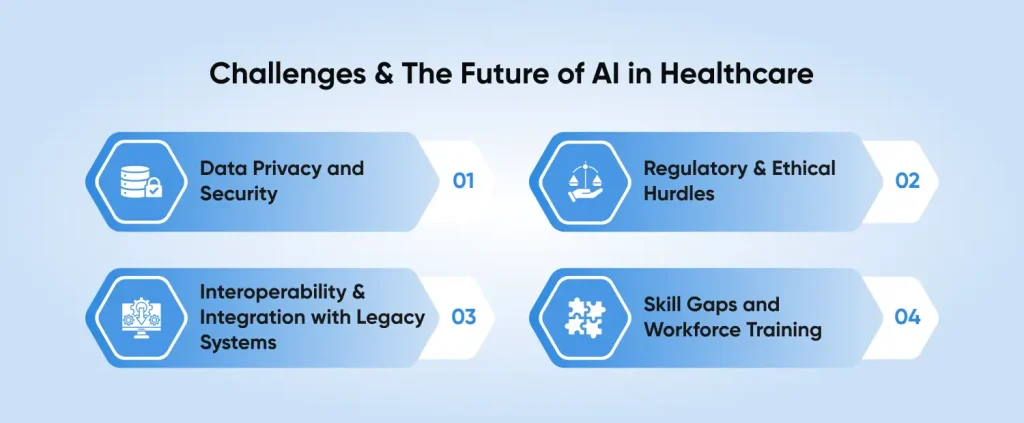
Data Privacy and Security
Protecting sensitive patient data is very important. All healthcare organizations should follow compliances like HIPAA in the US and GDPR in Europe. If you want to join the healthcare technology startups race, make sure to focus on establishing security frameworks from day one.
Regulatory & Ethical Hurdles
The development of AI-driven medical devices is under intense scrutiny. A key concern is algorithmic bias. This occurs if an AI is trained on a dataset that is not fairly sized or distributed. Always make sure to double check the system’s data training set and accuracy to avoid such situations.
Interoperability and Integration with Legacy Systems
Many hospitals and clinics continue to operate with outdated and fragmented IT systems. Introducing new AI healthcare tools into these environments can be challenging, slowing down data sharing and overall adoption. Having different EHR systems can cause inconsistent data formats, compiling accurate and complete datasets for AI training becomes a tough task.
Skill Gaps and Workforce Training
The successful implementation of AI development services requires a skilled workforce. There is a critical need for data scientists and machine learning engineers who understand healthcare, as well as for clinicians who are trained to use and trust AI-enabled patient care tools.
Looking Ahead: The Future of AI in Healthcare
The future of AI-enabled patient care promises even more profound changes.
Telemedicine AI
The integration of AI will make virtual consultations and remote patient monitoring more personalized and effective. Virtual health assistants AI can provide preliminary symptom analysis, triage patients, and answer routine questions, freeing up a doctor’s time for more complex cases.
The Rise of “Clinical AI”
As AI in medical diagnosis becomes more sophisticated, we will see its widespread use not just as a tool for radiologists but as a diagnostic assistant for primary care physicians, helping them analyze lab results and identify potential conditions more accurately.
The Promise of Explainable AI (XAI)
For doctors to trust and use AI tools, they must understand how the AI arrives at its conclusions or answers. This is a fascinating field known as Explainable AI or XAI for short. It creates transparent and interpretable AI models that will add a sense of transparency, trust, and confidence among clinicians and patients.
Final Words
AI healthcare startups are changing the whole health industry. They help find diseases earlier, create personal treatments, predict health risks, and make hospitals operate better.
While there are still problems to solve, like keeping patient information safe and training people to use these new tools, the positive impact is clearly worth the transition.Businesses that use AI are making healthcare smarter, more forward-looking, and easier for everyone to get. As this technology gets better, proper healthcare software development services will be key in creating the future of medicine.
FAQs on Healthcare AI Solutions
How Does Your AI Technology Contribute to Healthcare Improvement?
When given a chance to analyse training data, AI algorithms improve the systems, which in turn helps people gain unprecedented insights into treatment variability, care processes, diagnostics, and patient results.
What Benefits Can Healthcare Providers Expect by Adopting Your AI Solutions?
AI can assist service providers in collecting, storing, and analysing this data, allowing them to draw data-driven conclusions from large populations. By utilising this data, healthcare providers can improve disease management and treatment.
Are There Any Ongoing Maintenance or Upgrade Requirements for Your AI Solutions?
Constant maintenance is essential to keep AI models up-to-date and successful over time. According to Accenture, the ongoing support and maintenance expenditures for AI technologies can be 20% to 50% of the initial deployment costs.
What Future Developments or Innovations Can We Expect From Your AI Healthcare Startup?
AI can enhance personalized healthcare by utilizing genetic tests, clinical data, and health records. Regarding healthcare, startups are turning to machine learning for precise insights to aid in early disease identification and focused drug discovery.
How Is AI Used in the Health Care Industry?
AI is used across the healthcare industry to improve diagnostic accuracy, automate admin work, speed up drug discovery, and improve personalized patient care. Most AI systems in healthcare work by collecting, processing, and using massive data sets that the AI professionals use to identify patterns, predict outcomes, and automate tasks that don’t need much human intervention.
What are the Biggest Technical Hurdles for AI Healthcare Startups?
A major hurdle is a lack of high-quality, standardized medical data to train AI models effectively. Another challenge is integrating new AI systems with existing, often outdated, Electronic Health Record (EHR) systems. Startups also face difficulty creating “explainable AI” so doctors can trust and understand the algorithms’ decisions.
How Do Healthcare Companies Ensure Data Privacy and Comply With Regulations Like HIPAA?
To ensure privacy, companies use techniques like data anonymization, which removes personal identifiers from patient information. They also use federated learning, which trains AI models on data across different institutions without the data ever leaving a secure environment. Furthermore, they implement strict access controls and conduct regular security audits to maintain HIPAA compliance.
What are the Key Application Areas Where AI Is Making the Biggest Impact?
AI healthcare solutions have a widespread use case and areas where they are making significant impact. Most prominent applications of AI in health care include medical imaging and diagnostics, drug discovery, personalized medicine, and administration work automation.
How are AI Healthcare Startups Improving Operational Efficiency?
AI healthcare startups have been applying intelligent automation for handling administrative tasks, improving patient management, and even improvising clinical workflows. With the help of AI healthcare solutions, such AI-driven startups have been able to reduce admin burdens, improve resource allocation, and enable healthcare professionals to pay more attention to patient care.





